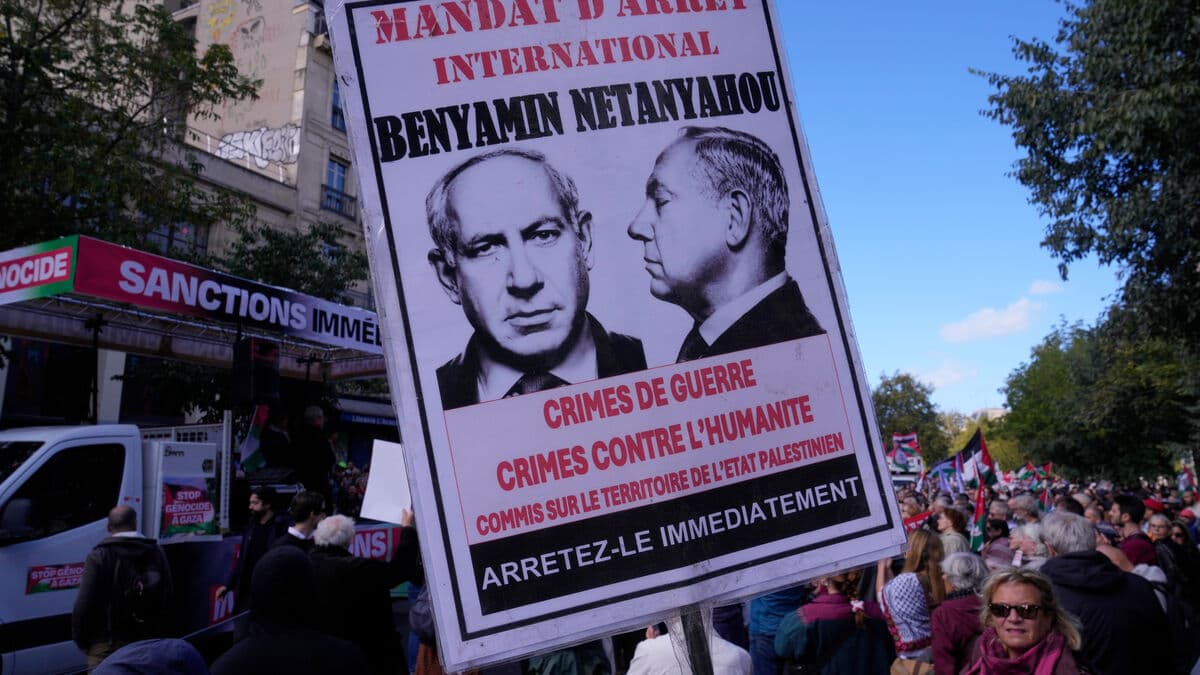For 18 years, Netanyahu has ruled Israel. During his three periods in power – 1996–1999, 2009–2021, and since December 2022 – the political survivor has managed to dodge both corruption scandals and corruption allegations.
He is an extremely skilled and enormously calculating politician, says Middle East expert Isabell Schierenbeck, professor of political science at the University of Gothenburg.
For several years, Netanyahu has been on trial in three different corruption cases and risks up to 13 years in prison. During the war, Netanyahu has repeatedly had the negotiations postponed, but with the ceasefire in place, the process is expected to proceed.
Several informed assessors believe that there is a great possibility that he will be convicted, notes Schierenbeck.
Advertisement
To The Hague?
Another problem is the loud demands for a state investigation into the October 7 attack. Netanyahu has so far opposed such an investigation, according to assessors because he would likely himself have to take responsibility for Israel being caught off guard by the attack. Netanyahu's long-standing support for financing Hamas – to keep the Palestinian government divided – is also expected to be heavily criticized in an investigation.
A further concern is the International Criminal Court's arrest warrant against Netanyahu for suspected war crimes in Gaza. To be brought to trial in The Hague, however, he would have to be arrested by a state that has signed the ICC's founding document, the Rome Statute.
Netanyahu has repeatedly been accused – with a considerable amount of reported evidence – of having prolonged the war in Gaza for his own political survival. Accepting a ceasefire earlier would likely have led to the collapse of Netanyahu's fragile coalition government, where the most extreme right-wing elements have consistently pushed for tougher action against Hamas and threatened to otherwise bring down the government.
Brought forward?
Now, a ceasefire is nonetheless in force – and next autumn, Israel will go to the polls. If there were elections today, the current government would not be re-elected, according to the latest polls.
Then, the opposition with some form of broader coalition would have won. (Netanyahu's party) Likud can still become the largest party, but Netanyahu would have difficulty forming a government, says Schierenbeck.
She believes that the election will take place earlier, perhaps in the spring. And despite everything, it is not possible to rule out Netanyahu.
Now he can argue that he has achieved the war goals and brought home the hostages. Plus, how successful the Israeli warfare has been in the region, for example, when it comes to Iran and Hezbollah.
Netanyahu is extremely thoughtful in how he navigates the political arena. It applied during the war and it applies now.
Advertisement
Born in 1949 in Tel Aviv. Grew up in Jerusalem, later educated in the USA. In the army, Netanyahu served in an elite unit from 1967 to 1973, when he left the military with the rank of captain.
His older brother Yonatan was part of the same elite unit but was killed in 1976 in an attempt to free Israeli hostages on a hijacked plane in Uganda. Little brother Benjamin had then begun a career in the USA but moved home to Israel and entered politics.
Leader of the right-wing party Likud, Prime Minister of Israel 1996–1999 and 2009–2021. In 2022, he managed to regain power, but only after painstakingly piecing together a coalition with, among other things, small extremist parties.
The process contributed to the view of Netanyahu as a power-hungry politician. Already before the Gaza war, regular, large street protests were held, then against the government's attempt to transfer power from the courts to politics. The bill sparked accusations that the Prime Minister wanted to clip the judiciary's wings to get away with his own mischief.
During the Gaza war, large demonstrations against Netanyahu's way of waging war – and inability to bring home hostages held by terrorist-stamped Hamas in Gaza – have been held in several Israeli cities.
In November 2024, the International Criminal Court (ICC) issued an international arrest warrant against, among others, Netanyahu. The allegations concern war crimes and crimes against humanity in the Gaza Strip.






